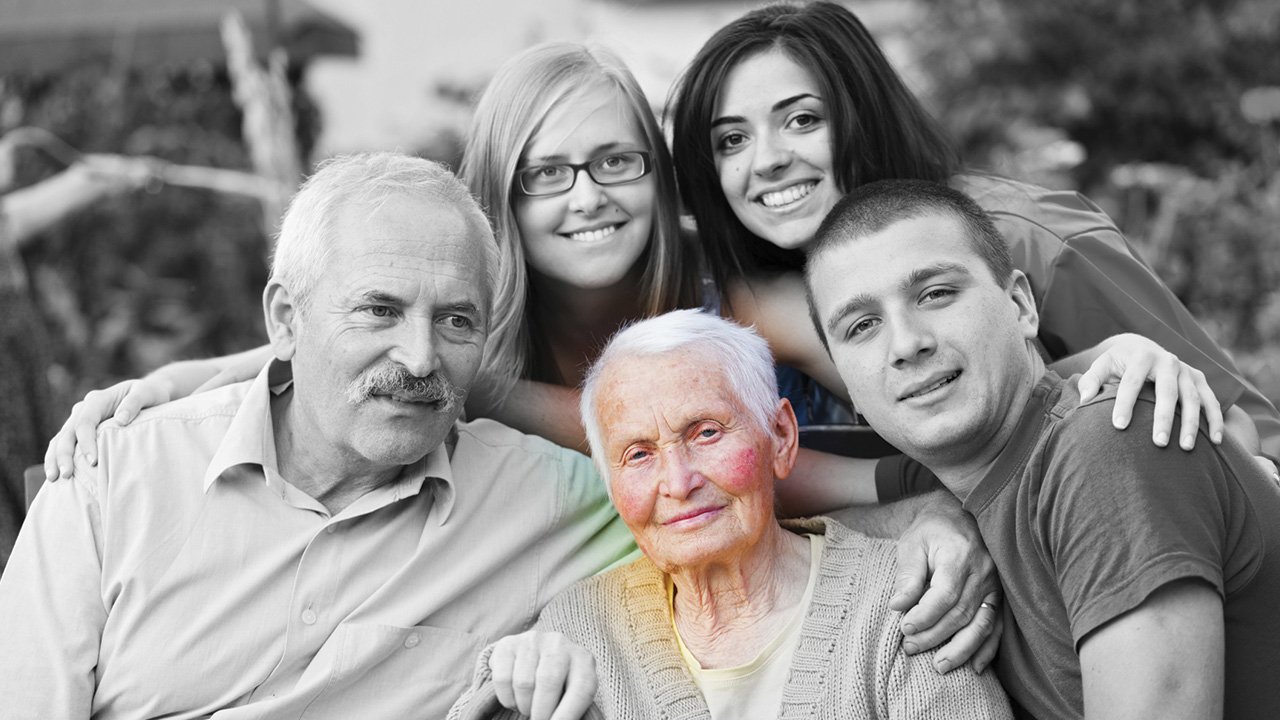You’ve probably heard the old saying, “there’s no I in team,” meaning that every member on a successful team puts selfishness aside and works together toward a common goal. Unfortunately, there is an “I” in caregiving and that “I” can represent many challenges that caregivers face daily: isolation, infuriation, irritation, imperfection and, at times, seemingly impossible.
During my years of caregiving, one particular incident made me realize that if caregivers want to keep their sanity, they have to eliminate that “I” by building a caregiver support team. It doesn’t have to be regimented or fancy; simply surrounding yourself and your loved one with thoughtful people and helpful services can be beneficial when you least expect it.
The Need for a Care Team
My epiphany regarding caregiver support came on a cold winter day years ago when Julie, my mail carrier, knocked on my door much earlier than she would normally pass by my home. Julie had been delivering the mail on her route a couple of blocks over when she noticed movement behind the snow-banked sidewalk across the street. Thinking it might be an injured animal, she went to investigate.
What she discovered was my 80-year-old neighbor, Joe, crawling toward his home. Joe had taken off on one of his impulsive walks to an old tavern downtown without considering the lack of sure footing. On a good day with dry cement under his feet, Joe shuffled with an occasional sideways wobble. Put ice and snow underfoot, and his walk was a recipe for disaster. Miraculously, Joe was cold but unharmed. The trouble was that after he had fallen, he couldn’t get back on his feet. Julie helped him up, escorted him home and then came looking for me since she knew I was his primary caregiver.
I expressed my gratitude to Julie, then went next door to Joe’s house and spent a fair amount of time scolding him. He knew I’d give him a ride wherever he wanted to go, and he could afford a taxi when he chose to be independent. Joe responded with his characteristic shrug; he stubbornly ignored my advice.
That day, I developed a new awareness and appreciation for kind people like Julie who are part of our elders’ regular routines. Postal carriers have been known to call the police when they see too much mail piling up in someone’s box. UPS and Fed-Ex delivery people, as well as others who run routes, have been known to find assistance for people when they notice something amiss. People who deliver Meals On Wheels are trained to watch for signs that something is wrong in the world of their meal recipients. All these routine delivery folks are, often unknowingly, part of a senior’s care team.
During my two decades of caregiving for multiple elders, I was the primary person responsible for looking after their needs. Whether it was for emergencies, shopping, medical appointments, medication management or handling complaints, I was there. However, within the framework of my care plan, there were many others who helped me and my care receivers both officially and unofficially.
The Advantages of a Care Team
While I often caution people against comparing family caregiving to raising and parenting children, there is one striking similarity that I cannot deny—both these undertakings require a village. Caregiver support is crucial for successfully looking after an aging or ill loved one and preventing caregiver burnout. Family members, when willing, are the obvious backup for the primary caregiver, but we shouldn’t stop there. Close friends or neighbors who may notice something “off” about a senior’s routine, senior center friends, and church groups can all be part of an unofficial care team.
Read: Create Your All-Star Care Team in 5 Steps
Just because a person isn’t regularly coming into the home to provide hands-on care doesn’t mean their participation isn’t valuable. If Julie hadn’t found Joe struggling in the snow that day, brought him home and notified me, I don’t know how long he would have laid there. Having an extra set of eyes and ears focused on your loved one’s well-being both at home and in the community keeps them safe and helps you worry less.
Other family caregivers can be amazingly helpful, too. Whether we find them in a caregiver support group, while visiting loved ones in senior living, or in an online caregiver forum, we can receive insights and support from our peers. Nobody understands the trials and tribulations involved in caregiving like someone who has been there.
Sadly, in many cases, family members may not be willing or able to help and friends tend to fall by the wayside, making it difficult to build a robust care team. Fortunately, all you need to do is look to your community for help. Family caregivers who want to expand their care teams should contact their local Area Agency on Aging (AAA). AAAs provide a wide range of assistance and can refer you to valuable resources and programs available in your community. Adding sources of support like Meals on Wheels, an in-person caregiver support group and respite care can help you and your loved one meet new people who can assist with your care plan in a variety of ways.
If you broaden your thinking and do some research, you might be surprised by all the support you find. Family caregivers shouldn’t have to handle everything alone. This approach leads to caregiver burnout and can jeopardize a senior’s health. Embracing a sense of community as well as asking for and accepting assistance can help family caregivers and their loved ones feel less isolated and more supported.

